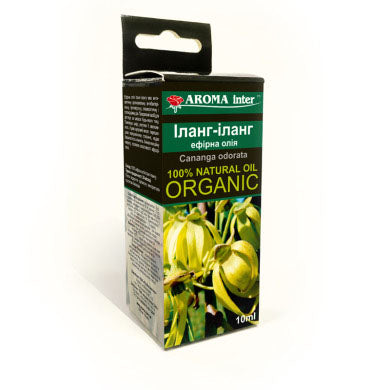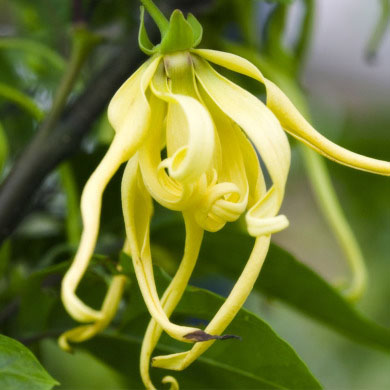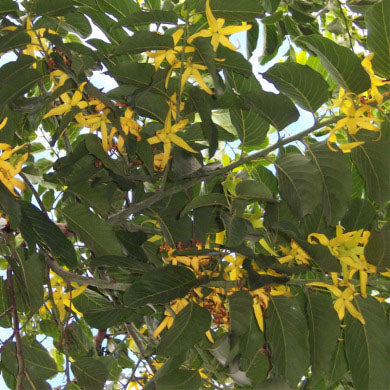Ganesh
Ylang-ylang (third fraction) 10 ml
Ylang-ylang (third fraction) 10 ml
Couldn't load pickup availability
The name Ylang-Ylang means "flower of flowers". For the first time ylang-ylang essential oil was prepared in 1860 on the island of Luzon. It immediately attracted attention of perfumers at the Paris World Exhibition in 1878 . According to Ayurveda, this plant belongs to the element of air. It has a sweet scent , which cools and moisturises.
Therapeutic effect: It has antiseptic, anti-inflammatory, antibacterial, antiviral, antispasmodic and anticonvulsant effect.
Cosmetic effect: The essential oil of ylang-ylang is a great skin-care product for any skin type. When used in mixtures , it is able to balance sebum production for oily skin. Removes irritation on dry skin. It softens the skin and regulates its hydration.
Ylang-ylang essential oil rejuvenates, moisturizes, smoothes, "polishes" the skin. It is suitable for sensitive and porous skin.
It eliminates acne, prevents premature aging, stimulates the growth of new cells in the deeper layers of the skin, gives velvety and softness to the skin.
Psycho-emotional effect: Ylang-ylang essential oil relieves emotional stress, feeling of anxiety, fear, arouses feeling of love, confidence, serenity, stimulates creativity, intuition; has a strong erotic effect. It is an aphrodisiac.
Methods of Use:
Aroma lamp: 3-7 drops to 15 m2.
Baths: 4-7 to the (necessarily pre-mixed with an emulsifier: 100-200 gr. of sea or common salt)
Saunas: 5-6 drops to 15 m2.
Massage: 3-7 drops to 15 g of carrier oil.
Enrichment of cosmetics: 1-5 drops to 10 g of the base (cream, shampoo ...)
Aroma medallions: 1-2 drops.
Safety: idiosyncrasy. Do not use during the first 5 months of pregnancy. People with low blood pressure are not recommended to use it. The smell may cause a headache for some people.






